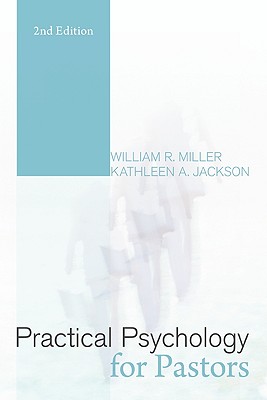
Breggin, Peter R.
As a physician who specializes in addiction medicine and drug withdrawal and written widely on them, I recommend Dr. Breggin's book to every health professional who deals with anyone taking psychiatric drugs. He gives highly useful information and reasons for stopping or avoiding them. It's an excellent one-stop source of information about psychiatric drug effects and withdrawal. Prescribers, therapists, patients, and families will benefit from this guidebook.
Charles L. Whitfield, MDBestselling author of Healing the Child Within and many other books
Peter Breggin has more experience in safely withdrawing psychiatric patients from medication than any other psychiatrist. In this book he shares his lifetime of experience. All of our patients deserve the benefit of our obtaining that knowledge.
Bertram Karon, PhDProfessor of Psychology, Michigan State University
Author, The Psychotherapy of Schizophrenia
Former President of the Division of Psychoanalysis of the American Psychological Association
This is such an important book. Describing the problem of withdrawal from psychiatric drugs in detail, and providing clear advice regarding how to deal with this problem as Peter has done so well in this book, is long overdue. For decades, the belief system that is mainstream psychiatry has denied the existence of withdrawal problems from the substances they prescribe so widely. In reality, withdrawal problems with psychiatric drugs is a common occurrence. Because of psychiatry's reckless denial of this real and common problem, millions of people worldwide have not had the support and care they desperately need when attempting to come off psychiatric drugs, often been erroneously advised that these problems are confirmation of the existence of their supposed original so-called 'psychiatric illness.' Dr. Breggin's book is therefore both timely and necessary.
Terry Lynch, MDPhysician and Psychotherapist
Author of Beyond Prozac: Healing Mental Suffering Without Drugs and Selfhood: A Key to the Recovering of
Emotional Well Being, Mental Health and the Prevention of Mental Health Problems
Dr. Peter Breggin has written an invaluable reference for mental health professionals and lay-persons alike who are seeking a way out of dependency on psychiatric drugs. He describes the many dangers of psychiatric medication in straightforward research-based and contextually nuanced terms. Most helpfully, he articulates a method of empathic, person-centered psychotherapy as an alternative to the prevailing emotionally and system disengaged drug-centered approach. In this book, Dr. Breggin systematically outlines how to safely withdraw a patient from psychiatric medication with rich case examples drawn with the detail and sensitivity to individual and situational differences that reveal not only his extensive clinical experience, but his clear, knowledgeable, and compassionate vision of a more humane form of treatment. In this volume, Dr. Peter Breggin has again demonstrated that he is a model of what psychiatry can and should be. This is an indispensable text for both mental health trainees and experienced practitioners seeking a practical alternative to the dominant drug-centric paradigm.
Gerald Porter, PhDVice President for Academic Affairs
School of Professional Psychology at Forest Institute
This much needed book and guide to psychiatric medication withdrawal is clearly written and easy to understand. As people become more empowered and able to inform themselves about the effects of pharmaceuticals, practitioners will be called upon to wean their patients off of damaging medications. This book will provide that guidance. Thank you Dr. Breggin for having the courage to oppose conventional psychiatric thinking and the caring to improve the quality of life for individuals who are ready to experience their own innate healing instead of reaching for a pill to mask the symptoms.
Melanie Sears, RN, MBAAuthor, Humanizing Health Care and Choose Your Words
Today many psychologists, nurses, social workers, and counselors are struggling with how to help adults and the parents of children who are over-medicated or who wish to reduce or stop taking their psychiatric drugs. Dr. Breggin's book shows non-prescribing professionals, as well as prescribers, how to respond to their patient's needs in an informed, ethical, and empowering fashion.
Sarton Weinraub, PhDClinical Psychologist
Director, New York Person-Centered Resource Center, NYC
This is the first book to establish guidelines and to assist prescribers and therapists in withdrawing their patients from psychiatric drugs, including those patients with long-term exposure to antipsychotic drugs, benzodiazepines, stimulants, antidepressants, and mood stabilizers. It describes a method developed by the author throughout years of clinical experience, consultations with experienced colleagues, and scientific research. Based on a person-centered collaborative approach, with patients as partners, this method builds on a cooperative and empathic team effort involving prescribers, therapists, patients, and their families or support network.
The author, known for such books as Talking Back to Prozac, Toxic Psychiatry, and Medication Madness, is a lifelong reformer and scientist in mental health whose work has brought about significant change in psychiatric practice. This book provides critical information about when to consider psychiatric drug reduction or withdrawal, and how to accomplish it as safely, expeditiously, and comfortably as possible. It offers the theoretical framework underlying this approach along with extensive scientific information, practical advice, and illustrative case studies that will assist practitioners in multiple ways, including in how to:
<
member goods
listens & views

CANADIAN BAGPIPES AMERICAN BRASS / ...
by CANADIAN BAGPIPES AMERICAN BRASS / VARIOUS
COMPACT DISC$17.75






